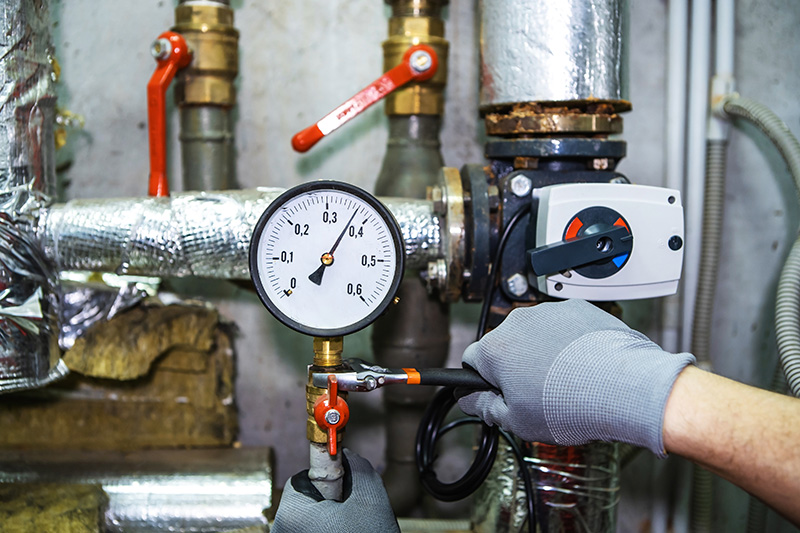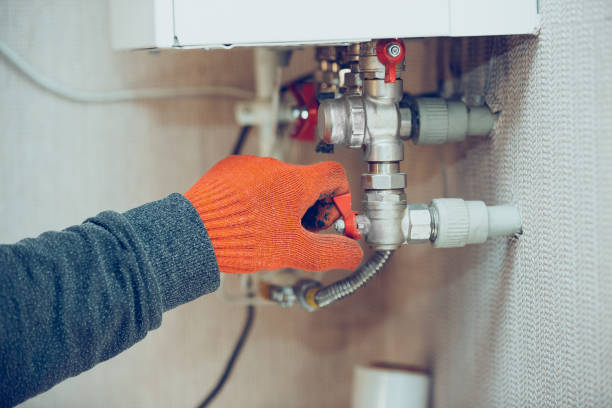Swift Steps for Low Water Pressure in Your Home
Swift Steps for Low Water Pressure in Your Home
Blog Article
What're your opinions regarding 9 Reasons for Low Water Pressure in Your House?

Low tide stress in your home can be an irritating issue, influencing whatever from bathing to cleaning dishes. If you're experiencing weak water flow, there are several possible causes and solutions to check out. In this guide, we'll go over usual reasons for low tide pressure and sensible actions to deal with the concern effectively.
Introduction to Low Tide Pressure
Low water pressure occurs when the circulation of water from your taps, showers, and various other components is weaker than usual. This can make daily jobs much more challenging and much less reliable. Comprehending the causes of low tide pressure is crucial to discovering the ideal service.
Common Causes of Low Water Pressure
Pipe Obstructions
Gradually, pipelines can end up being blocked with natural resource, sediment, or particles, restricting the flow of water. This is a common issue in older homes with galvanized steel pipes.
Deterioration
Corrosion within pipes can lead to leaks and reduced water pressure. Corrosion accumulation can constrict water circulation, particularly in maturing plumbing systems.
Faulty Stress Regulators
Pressure regulators are in charge of preserving constant water stress in your home. If they malfunction, it can result in low tide pressure or irregular flow throughout your home.
Community Water Supply Issues
Sometimes, the problem lies outside your home. Municipal water issues, such as main line leaks or maintenance job, can temporarily minimize water stress in your area.
How to Identify Low Tide Stress
Inspecting Taps and Components
Start by examining the water pressure at various taps and fixtures throughout your home. If the concern is isolated to certain areas, it may suggest localized troubles.
Evaluating Pipelines
Check visible pipes for signs of leaks, deterioration, or blockages. Take note of any kind of uncommon sounds, such as knocking or rattling pipes, which could suggest issues within the plumbing system.
Consulting with a Plumber
If you're not able to identify the source of low water pressure, think about hiring an expert plumber to carry out an extensive assessment. They can identify underlying concerns and recommend suitable remedies.
Do It Yourself Solutions to Deal With Low Tide Pressure
Cleansing Aerators and Showerheads
Natural resources can collect in aerators and showerheads, minimizing water circulation. Eliminate and clean these parts on a regular basis to boost water pressure.
Flushing Water Heater
Debris buildup in the water heater can restrict flow and lower effectiveness. Purging the tank regularly aids eliminate debris and maintain optimal performance.
Checking Stress Regulatory Authority
Ensure that the pressure regulator is functioning correctly. Adjusting or changing the regulatory authority can assist bring back appropriate water pressure throughout your home.
Clearing Clogs in Piping
For small clogs, try using a plumbing snake or chemical drain cleaner to clear blockages in pipes. Beware when making use of chemicals and comply with safety and security standards.
When to Call an Expert Plumber
If do it yourself efforts fail to resolve the issue or if you suspect significant plumbing issues, it's finest to look for help from a certified plumber. They have the knowledge and tools to address complex concerns securely and properly.
Safety Nets to Keep Water Stress
Normal Upkeep
Set up regular maintenance for your plumbing system to avoid issues such as corrosion, leakages, and clogs. Dealing with small issues early can help prevent more significant repairs later.
Mounting a Pressure Booster
Take into consideration mounting a stress booster pump to boost water stress in areas with continually low flow. This can be specifically advantageous for multi-story homes or homes with high-demand components.
Monitoring Water Use
Be mindful of water usage behaviors and prevent overtaxing the plumbing system. Straightforward adjustments, such as incredible showers and washing lots, can help maintain ample water stress.
Conclusion
Dealing with low water pressure can be irritating, but recognizing the underlying causes and applying appropriate options can recover optimal circulation throughout your home. Whether it's cleansing aerators, inspecting pipes, or consulting with a plumber, taking positive actions can ensure a consistent supply of water for your daily requirements.
HOW TO FIX LOW WATER PRESSURE IN YOUR HOUSE (EXPERT GUIDE)
The morning shower lacking any real pressure? Bathtub taking hours to fill? Or maybe you’re dissatisfied with the inadequate performance from your combi boiler?
Then you, like millions of others across the UK, might be experiencing low water pressure.
Fortunately, the good news is that you don’t have to continue living this way. The cause of low water pressure in the home is often quite simple, and you may not even require a plumber to fix the problem.
What causes low water pressure in the house?
If you are experiencing issues with water pressure throughout your home, then you may have one of the problems outlined below.
Most of these problems can be fixed quite easily, but for others, you may need to contact a plumber.
Obstructed Shutoff Valve
If you’ve just bought a new home or recently had building work conducted on your property, there is a chance that your water valves were not fully opened.
If the water valve is partially closed, then you may be restricting the amount of water entering your home. To fix this, simply ensure the valve is fully open.
If the valve appears fully open but you are still encountering reduced water pressure, then the valve may be broken. If this is the case, do not under any circumstances try to fix it without proper training.
Often found under your kitchen sink, a water valve will usually look like a bright yellow handle.
Again, if you believe the water valve is broken, contact a plumber immediately.
Leaks in Your Water Pipes
Leaks are the worst-case scenario when it comes to low water pressure.
If the water pipes are damaged, then this will cause low water pressure, as not all the water will make it to your taps.
After you’ve checked to see if the valve is fully open, you can conduct a leak check of your home. Now, this may seem scary, but it is actually quite simple.
Clogged Water Pipes
Clogged water pipes are one of the most common causes of low water pressure.
These clogs usually build-up when your home is supplied water via iron pipes. Iron is particularly vulnerable to rusting which can then break off and cause an obstruction within your system. You also face the problem of things like dirt, gravel or sand entering creating mineral deposits which further block water flowing from the mains water supply.
Unfortunately, if you suspect that clogged pipes may be restricting your water supply, then you will need to contact a plumber.
In this situation, you will either need to have your pipes removed and cleaned or in more severe cases, you could require a new set of water pipes.
Designer Taps
Designer taps look fantastic, but are they built to be efficient in your plumbing system? Modern taps are built for modern homes and they often have lower flow rates that are specifically designed for use within high-pressure systems.
Install a Water Pressure Booster Pump
If the issue is simply that the mains water pressure supply is too low, the simplest fix is to invest in a booster pump. Found in homes of all shapes and sizes, booster pumps are a relatively cheap option to add extra pressure to your home.
Designed to increase water pressure by passing water into the pump from your mains supply and then ejecting it into your home water system at a higher pressure, a booster pump is a truly simple and effective solution to increasing water pressure.
https://www.anchorpumps.com/blog/the-plumbers-guide-to-fixing-low-water-pressure/

HOW TO FIX LOW WATER PRESSURE IN YOUR HOUSE (EXPERT GUIDE)
The morning shower lacking any real pressure? Bathtub taking hours to fill? Or maybe you’re dissatisfied with the inadequate performance from your combi boiler?
Then you, like millions of others across the UK, might be experiencing low water pressure.
Fortunately, the good news is that you don’t have to continue living this way. The cause of low water pressure in the home is often quite simple, and you may not even require a plumber to fix the problem.
What causes low water pressure in the house?
If you are experiencing issues with water pressure throughout your home, then you may have one of the problems outlined below.
Most of these problems can be fixed quite easily, but for others, you may need to contact a plumber.
Obstructed Shutoff Valve
If you’ve just bought a new home or recently had building work conducted on your property, there is a chance that your water valves were not fully opened.
If the water valve is partially closed, then you may be restricting the amount of water entering your home. To fix this, simply ensure the valve is fully open.
If the valve appears fully open but you are still encountering reduced water pressure, then the valve may be broken. If this is the case, do not under any circumstances try to fix it without proper training.
Often found under your kitchen sink, a water valve will usually look like a bright yellow handle.
Again, if you believe the water valve is broken, contact a plumber immediately.
Leaks in Your Water Pipes
Leaks are the worst-case scenario when it comes to low water pressure.
If the water pipes are damaged, then this will cause low water pressure, as not all the water will make it to your taps.
After you’ve checked to see if the valve is fully open, you can conduct a leak check of your home. Now, this may seem scary, but it is actually quite simple.
Clogged Water Pipes
Clogged water pipes are one of the most common causes of low water pressure.
These clogs usually build-up when your home is supplied water via iron pipes. Iron is particularly vulnerable to rusting which can then break off and cause an obstruction within your system. You also face the problem of things like dirt, gravel or sand entering creating mineral deposits which further block water flowing from the mains water supply.
Unfortunately, if you suspect that clogged pipes may be restricting your water supply, then you will need to contact a plumber.
In this situation, you will either need to have your pipes removed and cleaned or in more severe cases, you could require a new set of water pipes.
Designer Taps
Designer taps look fantastic, but are they built to be efficient in your plumbing system? Modern taps are built for modern homes and they often have lower flow rates that are specifically designed for use within high-pressure systems.
Install a Water Pressure Booster Pump
If the issue is simply that the mains water pressure supply is too low, the simplest fix is to invest in a booster pump. Found in homes of all shapes and sizes, booster pumps are a relatively cheap option to add extra pressure to your home.
Designed to increase water pressure by passing water into the pump from your mains supply and then ejecting it into your home water system at a higher pressure, a booster pump is a truly simple and effective solution to increasing water pressure.
https://www.anchorpumps.com/blog/the-plumbers-guide-to-fixing-low-water-pressure/
I'm very enthusiastic about 9 Reasons for Low Water Pressure in Your House and I hope you enjoyed our article. So long as you enjoyed our blog post please don't forget to pass it around. We cherish your readership.
Visit Our Site Report this page